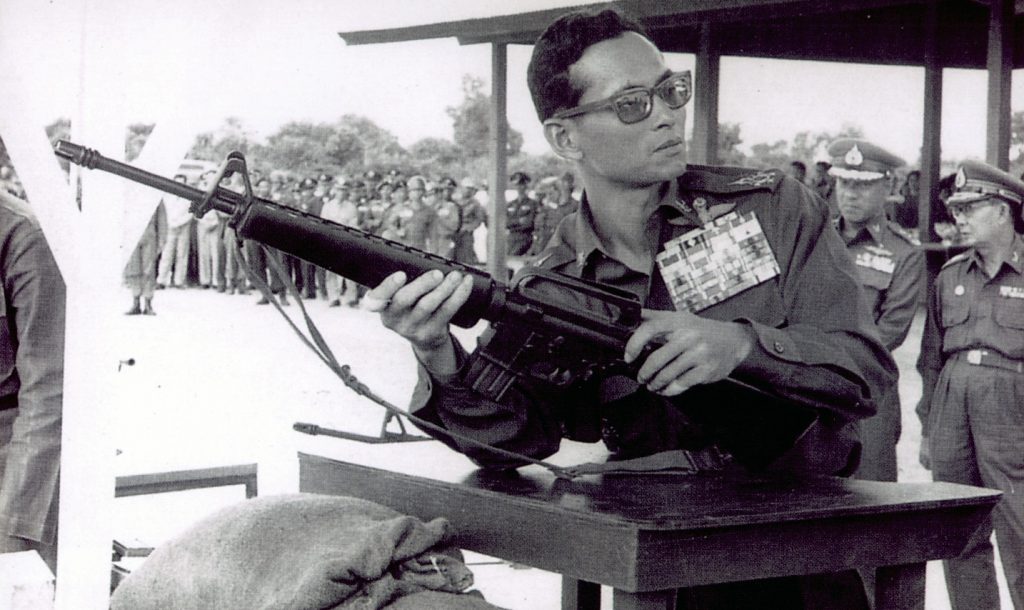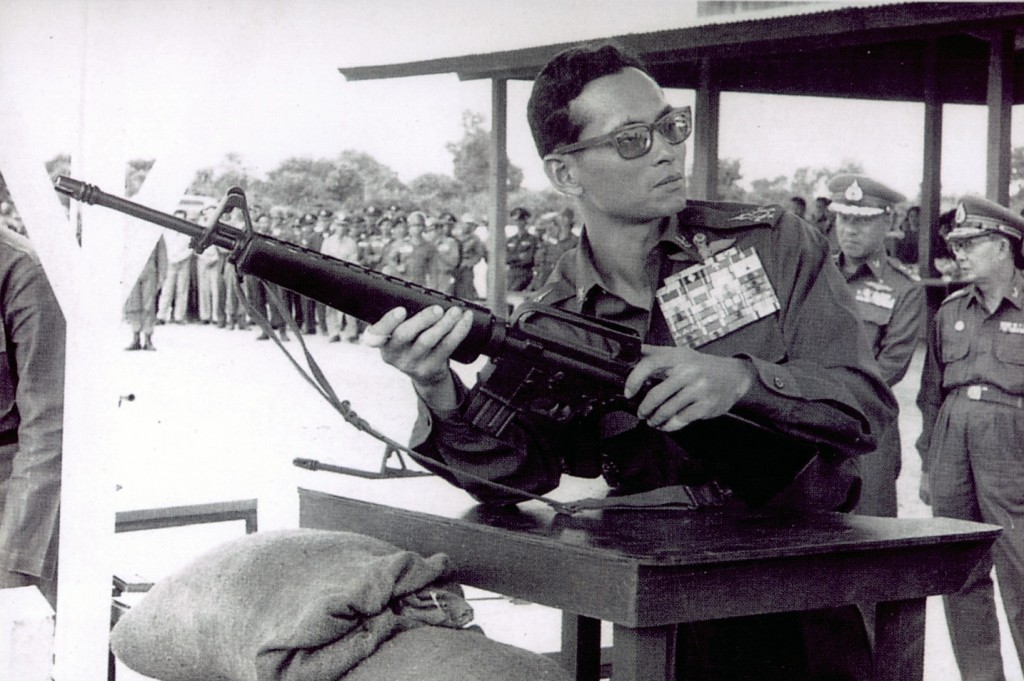The conflict in Thailand took a brief break on 5December 2013 in a mark of respect for King Bhumibol Adulyadej’s birthday. Most years, depending on his health, Thais look forward to the His Majesty’s annual birthday speech for inspiration and instruction. Previous speeches, often unscripted, have exceeded an hour and usually contain messages that provide guidance in difficult times or glimmers of hope in times of deep strife.
In contrast, his speech this year was marked by its brevity. Its contents was not full of the wisdom or timely counsel of speeches in years past. To anyone watching, it was clearly evident that the king’s health is continuing to fade. At a time where Thailand once again has found itself deeply mired in political conflict, both sides looked to the king for instruction. However this time around, the king was unable to provide that guidance and made it clear that he would not be stepping in to adjudicate this round of conflict.
The self-exiled former Prime Minister Thaksin Shinawatra’s electoral victories in 2001 and 2006 were driven by rural, mostly poor, uneducated voters in the north and north-east of Thailand. His ‘populist’ policies, including subsidised health care, low-interest agricultural loans and injections of cash into villages, gave his supporters a level of social and economic mobility that they had never previously experienced and turned Thaksin into an unstoppable force on election day. Thaksin’s rise and popularity inspired fear among the urban middle and upper class that he envisioned himself as the patron of big business and the rural poor. Thaksin was using his power at the ballot box to install a new social and political arrangement which would bypass traditional elites, who with their old money, privileged positions and connections to the monarchy would find themselves rendered redundant in Thaksin’s Thailand.
During previous fits of violence, the elites have halted the rise of Thaksin and managed to retain their exalted societal status several times: in 2006 with assistance from the military, in 2008 with a compliant judiciary. In 2013 they are hoping for a people’s coup.
What the king’s appearance on his birthday showed to all Thais was something that those close to the monarchy must have known for some months; because of the his ailing health, the royal succession is looming. For Suthep and his elite allies, their fear of the rising “Thaksin regime” is not just aimed at the premiership of Yingluck and their allegedly corrupt cronies, but it is also evidence of their concern that the monarchy may also become a puppet under the control of the Shinawatra clan.
There has been a long standing rumours around the Bangkok elite that just as the voters in the north have been seduced by Thaksin’s handouts, so has the Crown Prince. His alleged excesses have long been rumoured to be funded by the Shinawatras. That Suthep’s platform for revolution is predicated on moral superiority clearly points to aiming to preserve the legacy of King Bhumibol. But it is also a thinly veiled criticism of his supposedly immoral and unpopular son.
Bangkok has been aflutter with rumours about the Crown Prince for a long time and questions around the king’s health and royal succession are regularly discussed in universities and among friends. In years past these rumours based on unsubstantiated or highly skewed gossip were for the the titillation of the urban middle class. However, for Suthep and his allies. there is a genuine belief that these rumours are actually truths which need to be acted upon without hesitation.
The Bangkok elite have cultivated their positions in society by closely aligning themselves with the king. However, for the king, his time may sadly be running out. This means that the rich upper-class Bangkokians who have built careers through connections to the monarchy, the select families who have built their fortunes on favours and friendly deals, those whose position as ‘elites’ in society is determined by their proximity to friends of the monarchy, and the few families who have for generations had the rare privilege of high education and culture, they fear that their time at the top is also running out.
Therefore, the royal prerogatives, comfortable appointments and favourable business ties that they have enjoyed under the existing arrangement will be placed in jeopardy when Thaksin gains an ally on the throne.
The reality is that the “people’s revolution” is not about ridding Thailand of the criminal, corrupt and legislatively inept Thaksin clan nor is it about reforming Thailand’s political system. It is about preserving the cushy status quo of the Thai elite. The conservative elite have harnessed Bangkokians fury against Thaksin in a “people’s pevolution” as a foil to consolidate their positions in Thai society as they believe the status quo will be challenged when the Crown Prince takes the throne.
Suthep and his allies are calling this a “people’s revolution.” He says that the educated middle class and the cultured elites are the ones driving this push against the “Thaksin regime” and unfortunately he is absolutely right. That the educated middle-class and privileged elites are willing to turn their back on electoral democracy in order to protect their privileged positions does not bode well for the future of Thailand. The tragedy is that King Bhumibol’s reign may end up being better remembered for its failed succession than its many achievements.
Joe Whitman is the pseudonym of a Thailand-based analyst
 Facebook
Facebook  Twitter
Twitter  Soundcloud
Soundcloud  Youtube
Youtube  Rss
Rss 
